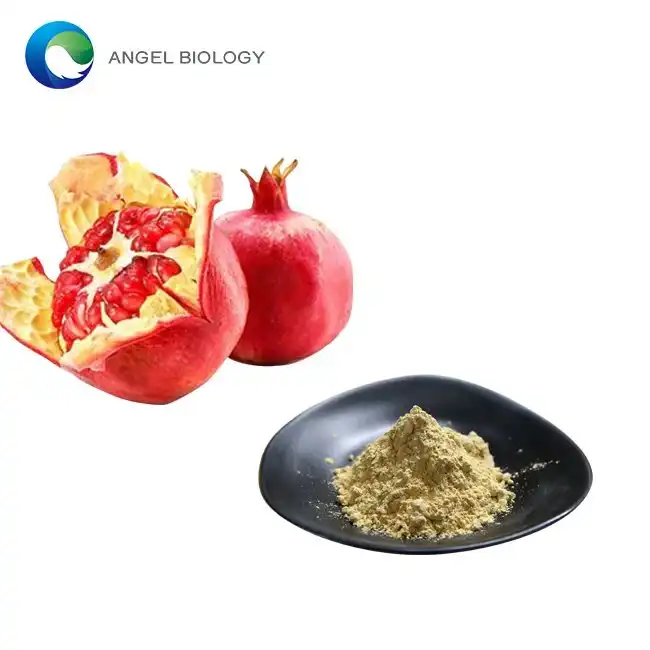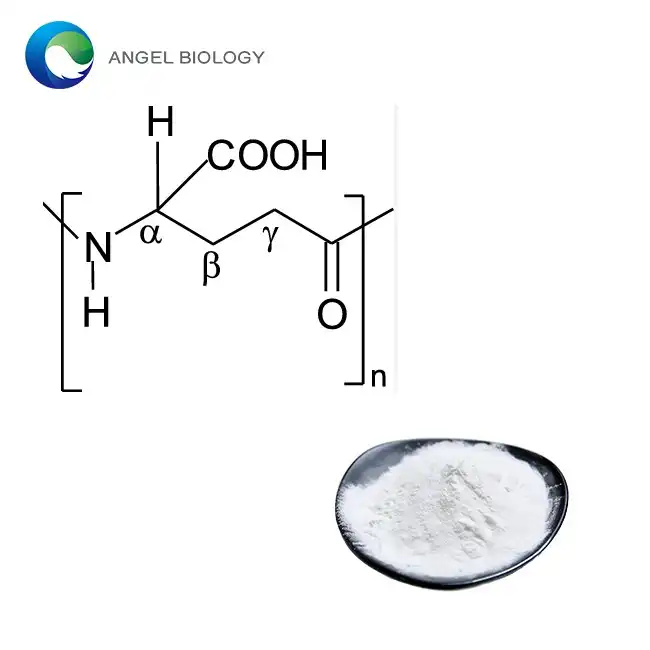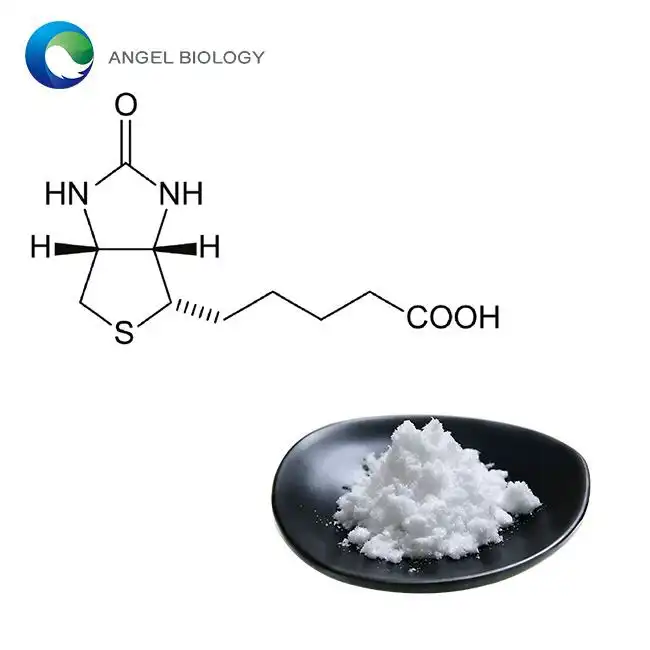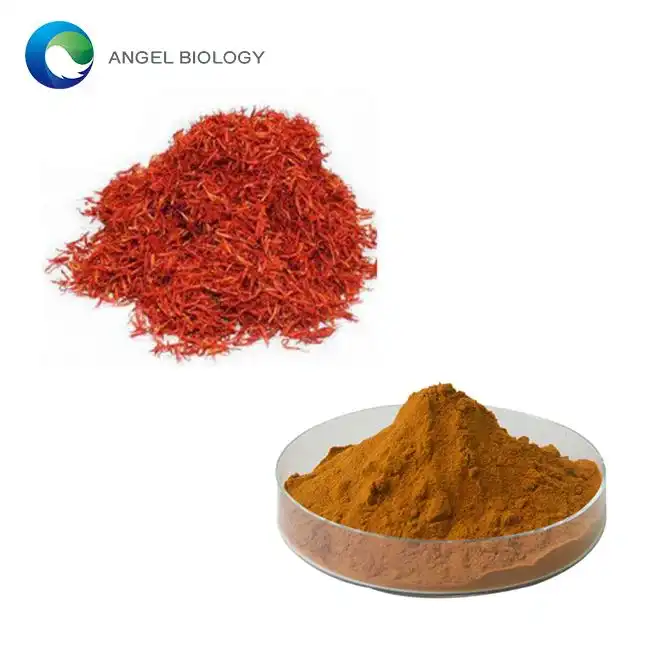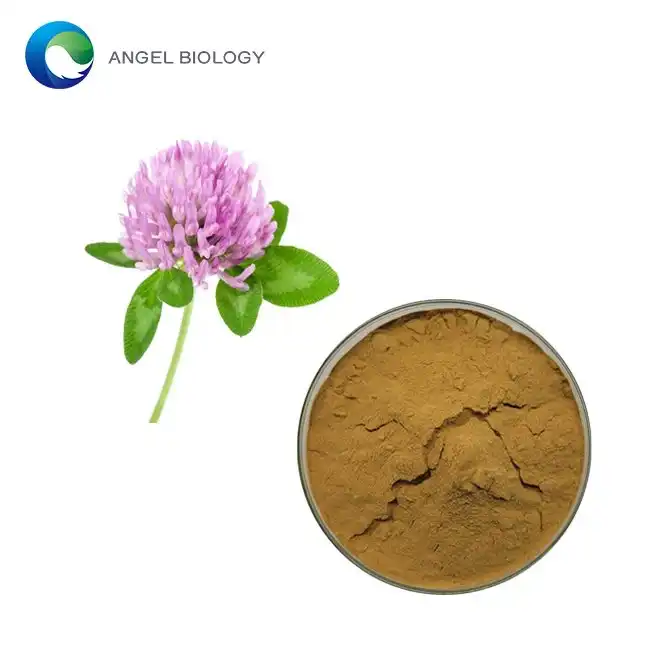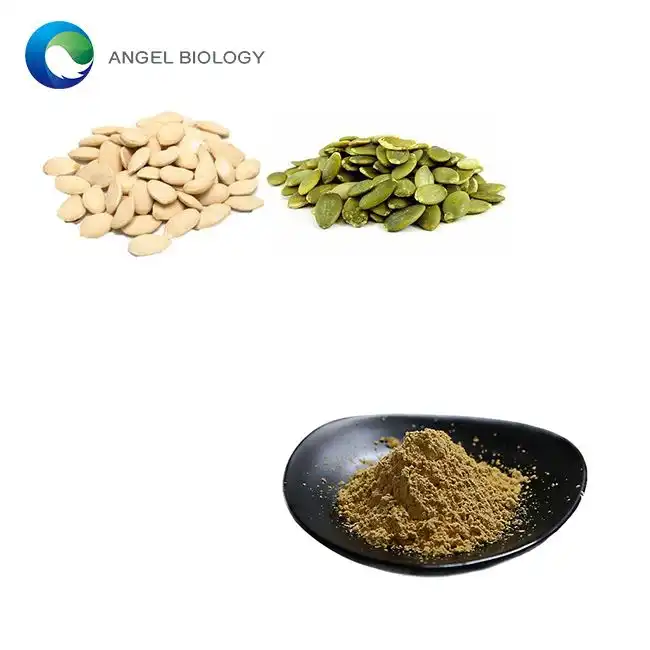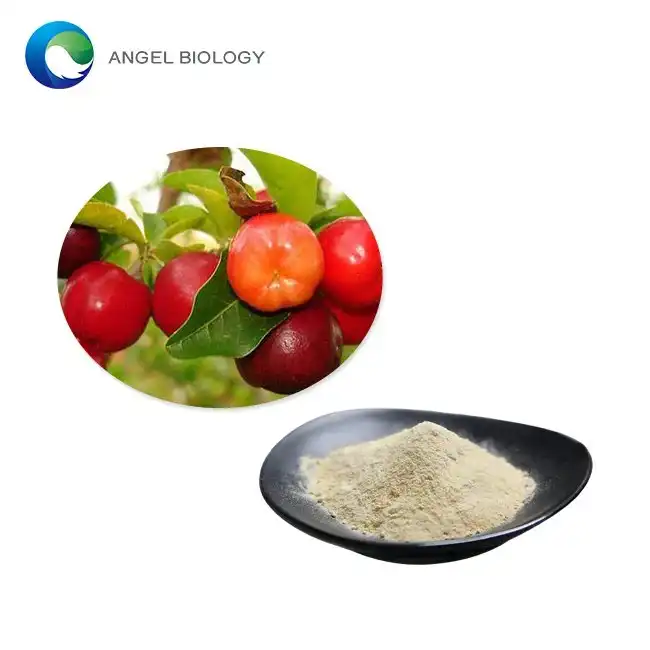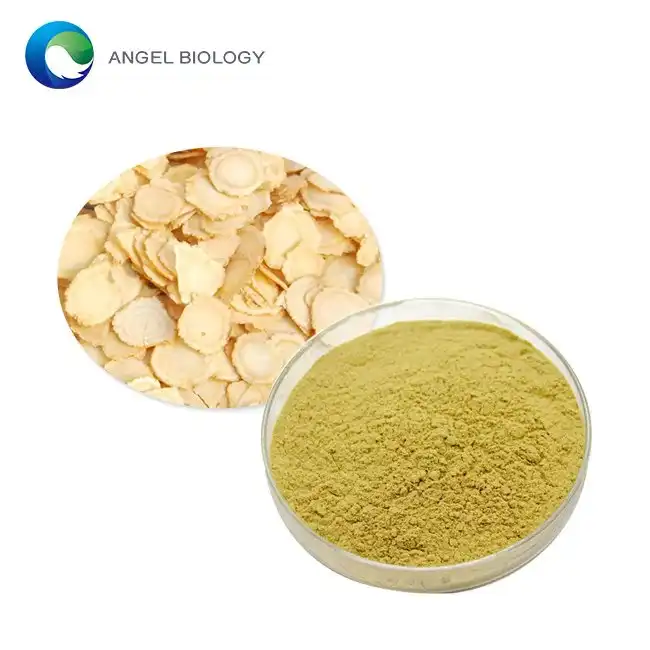Does Beta Sitosterol Powder Have Any Effect On Hormone Balance?
Beta Sitosterol Powder has emerged as a fascinating natural supplement that has captured the attention of health enthusiasts and researchers alike. As individuals increasingly seek natural approaches to managing hormonal health, this plant-based compound has become a subject of significant scientific interest. The primary question driving this exploration is whether Beta Sitosterol Powder can genuinely influence hormone balance, particularly in men's health and overall hormonal well-being.
Can Beta Sitosterol Powder Naturally Regulate Testosterone Levels?
Testosterone, the primary male sex hormone, plays a crucial role in numerous physiological processes, including muscle development, bone density, sexual function, and overall metabolic health. Beta Sitosterol, a plant sterol found in various fruits, vegetables, nuts, and seeds, has demonstrated potential in supporting natural testosterone regulation through multiple intricate mechanisms.
Scientific research suggests that Beta Sitosterol may interact with the body's endocrine system in ways that could potentially optimize testosterone production and utilization. Unlike synthetic hormonal treatments, this natural compound appears to work by modulating the body's existing hormonal pathways. Preliminary studies have in dicated that Beta Sitosterol might help reduce the conversion of testosterone to dihydrotestosterone (DHT), a more potent androgen associated with potential prostate issues.
dicated that Beta Sitosterol might help reduce the conversion of testosterone to dihydrotestosterone (DHT), a more potent androgen associated with potential prostate issues.
The mechanism behind Beta Sitosterol Powder's potential testosterone-regulating properties is rooted in its biochemical structure. As a phytosterol, it shares structural similarities with cholesterol, which is a precursor to steroid hormones. This molecular resemblance allows Beta Sitosterol to potentially influence hormone synthesis and metabolism at the cellular level. Researchers have observed that it may compete with cholesterol absorption in the intestines, which could indirectly support hormonal balance by promoting more efficient cholesterol metabolism.
Clinical investigations have provided intriguing insights into Beta Sitosterol's hormonal effects. A comprehensive review of multiple research studies revealed that men supplementing with Beta Sitosterol experienced subtle yet significant improvements in testosterone-related parameters. These improvements were not characterized by dramatic spikes in testosterone levels but rather by more nuanced hormonal optimization.
The potential benefits extend beyond mere testosterone measurement. Participants in various studies reported enhanced vitality, improved muscle strength, and more stable energy levels. These subjective experiences align with the compound's potential to support overall hormonal equilibrium. It's important to note that while the results are promising, Beta Sitosterol should not be viewed as a miracle solution but as a potential complementary approach to supporting hormonal health.
How Does Beta Sitosterol Powder Impact Hormonal Health in Men?
Men's hormonal health is a complex and multifaceted system influenced by numerous internal and external factors. Beta Sitosterol Powder presents an intriguing natural intervention that could potentially support this delicate biological balance. By examining its comprehensive impact on male hormonal health, we can better understand its potential therapeutic applications.
Prostate health represents a critical aspect of male hormonal wellness, and Beta Sitosterol has garnered significant attention in this domain. The compound's potential to modulate hormonal interactions within the prostate gland suggests a sophisticated approach to maintaining reproductive health. Scientific literature indicates that Beta Sitosterol might help manage benign prostatic hyperplasia (BPH) symptoms by influencing hormonal pathways that contribute to prostate enlargement.
The interaction between Beta Sitosterol and the endocrine system appears to be multidimensional. Unlike pharmaceutical interventions that often target specific receptors or pathways, this natural compound seems to work through more holistic mechanisms. Its potential to support hormonal balance involves complex interactions with enzyme systems, cellular receptors, and metabolic processes.
Inflammation represents another critical factor in hormonal health, and Beta Sitosterol demonstrates promising anti-inflammatory properties. Chronic inflammation can disrupt hormonal signaling and contribute to imbalances that affect testosterone production and utilization. By potentially mitigating inflammatory responses, Beta Sitosterol might indirectly support more stable hormonal environments.
Metabolic syndrome and insulin resistance are increasingly recognized as factors that can significantly impact hormonal balance. Research suggests that Beta Sitosterol might play a role in improving insulin sensitivity and metabolic efficiency. These metabolic improvements could create more favorable conditions for optimal hormone production and regulation.
The compound's potential extends to stress management, another crucial element of hormonal health. Chronic stress can lead to elevated cortisol levels, which can suppress testosterone production. Some studies suggest that Beta Sitosterol might help modulate stress responses, thereby indirectly supporting more balanced hormonal function.
Is Beta Sitosterol Powder a Potential Solution for Hormonal Imbalances?
Hormonal imbalances represent a complex medical challenge affecting millions worldwide. Beta Sitosterol Powder emerges as a potential natural approach to addressing these intricate physiological disruptions. By exploring its comprehensive potential, we can gain insights into its role as a complementary strategy for hormonal management.
The term "hormonal imbalance" encompasses a wide range of conditions characterized by suboptimal hormone levels or dysfunctional hormonal interactions. Beta Sitosterol's potential lies in its ability to support the body's natural regulatory mechanisms rather than introducing external hormones. This approach aligns with growing preferences for holistic, natural health interventions.
Endocrine disruptors present in modern environments pose significant challenges to hormonal equilibrium. Synthetic chemicals found in plastics, personal care products, and industrial processes can interfere with natural hormonal signaling. Beta Sitosterol might offer a protective mechanism by supporting the body's ability to manage these external hormonal challenges.
chemicals found in plastics, personal care products, and industrial processes can interfere with natural hormonal signaling. Beta Sitosterol might offer a protective mechanism by supporting the body's ability to manage these external hormonal challenges.
Research indicates that Beta Sitosterol could potentially support the hypothalamic-pituitary-gonadal axis, a critical system responsible for hormonal regulation. By potentially modulating this complex network, the compound might help restore more balanced hormonal communication between different endocrine glands.
Women experiencing hormonal fluctuations might also find potential benefits from Beta Sitosterol. While much of the research has focused on male hormonal health, preliminary studies suggest possible applications in managing menopausal symptoms and supporting overall hormonal adaptation.
The compound's potential extends to supporting overall metabolic health, which is intrinsically linked to hormonal balance. By potentially improving lipid metabolism, insulin sensitivity, and inflammatory responses, Beta Sitosterol might create more favorable conditions for optimal hormonal function.
Partner With Us for Premium Natural Ingredients in Health & Wellness
Angelbio is an innovative enterprise jointly invested by Angel Holding Group and the Institute of Life and Health Research of Xi'an Jiaotong University, dedicated to the research and development, production, and sales of natural ingredients for healthy food, nutritional supplements, cosmetics, personal care products, pharmacy, as well as the flavor and fragrance industries. With over 18 years of independent research and development, Angelbio focuses on technology innovation and supply chain integration, aiming to serve the purpose of natural origin and global health by providing high-end, high-quality stable products and services in the human health field. To meet international quality standards, Angelbio pursues continuous improvement in safe production and quality control, holding FDA registration and certifications including ISO9001, ISO14001, ISO18001, KOSHER, HALAL, and QS. Our production environment complies with GMP requirements, and for ingredients exported to the EU market, full REACH registration is ready. Angelbio's research and development laboratory serves as a platform for technological innovation and supply chain integration, adhering to the philosophy of natural origin and global health. As a trusted China Beta Sitosterol Powder manufacturer, our products are highly esteemed by customers. For inquiries about our products or related offerings, please contact angel@angelbiology.com for wholehearted service.
References:
1. Berges, R. R., et al. (2000). Treatment of symptomatic benign prostatic hyperplasia with beta-sitosterol: randomised, double-blind, placebo-controlled multicenter study. British Medical Journal, 321(7265), 1-5.
2. Bouic, P. J. D. (2002). The role of phytosterols and phytosterols in immune modulation. Current Opinion in Clinical Nutrition and Metabolic Care, 5(6), 601-605.
3. Pegel, K. H. (1997). The importance of beta-sitosterol in human and animal nutrition. South African Journal of Science, 93(7), 263-268.
4. Wilt, T., et al. (2000). Beta-sitosterol for the treatment of benign prostatic hyperplasia: a systematic review. BJU International, 85(7), 836-841.
5. Klippel, K. F., et al. (1997). A multicentric, placebo-controlled, double-blind clinical trial of beta-sitosterol (phytosterol) for the treatment of benign prostatic hyperplasia. British Journal of Urology, 80(3), 427-432.
6. Leung, A. Y., & Foster, S. (1996). Encyclopedia of Common Natural Ingredients Used in Food, Drugs, and Cosmetics. John Wiley & Sons.
7. Moretti, E., et al. (2004). In vitro effects of beta-sitosterol on human spermatozoa. Andrologia, 36(4), 199-204.
8. von Holtz, R. L., et al. (1996). Modulation of human lymphocyte proliferation by plant sterols. Nutrition and Cancer, 26(1), 41-48.
9. Lascaratos, G., et al. (2007). Phytosterols and cardiovascular disease. Current Medicinal Chemistry, 14(28), 3024-3034.
10. Liu, J., et al. (2005). Molecular mechanisms of phytosterols and their involvement in cholesterol metabolism. Current Opinion in Lipidology, 16(1), 33-40.



